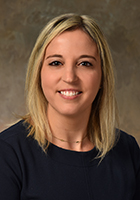Myth #1: I don’t have a family history of breast cancer, so I don’t need to worry about getting breast cancer myself.
Fact: Although having an immediate family history of breast cancer elevates your risk of developing breast cancer, 87% of women diagnosed with breast cancer have no known family history of the disease.
Myth #2: Breast pain is a definite sign of breast cancer.
Truth: Breast pain is usually a benign symptom often related to hormonal changes. The majority of breast cancers have no associated symptoms and are painless.
Myth #3: A mammogram can cause breast cancer or spread it.
Truth: Although radiation exposure is a risk factor for breast cancer, the amount of radiation you receive from a mammogram is minuscule and the benefits of screening imaging far outweigh the risk of radiation exposure. The amount of radiation you receive from a mammogram is equivalent to the level of background radiation you receive over seven weeks just living your life and also equivalent to the amount of radiation exposure you would receive flying round trip from New York to Los Angeles.
Myth #4: Finding a lump in your breast means you have breast cancer.
Truth: There are many reasons to have a new lump in your breast that aren’t cancer, such as a cyst, scar tissue, or a benign tumor. However, any new lump that persists beyond one month should be evaluated with a physical exam by your provider and may need breast imaging to rule out a cancer. If the initial evaluation is inconclusive, sometimes a biopsy needs to be performed however even in that scenario, most masses that we biopsy luckily are benign (not cancer).
Myth #5: Breast cancer only affects women who are age 45 and older.
Truth: Although most breast cancers are diagnosed in women 50 or older, women younger than that can develop breast cancer. Certain risk factors such as having multiple family members diagnosed with breast cancer especially if the family members were diagnosed at 45 or younger, or those who carry a genetic predisposition such as a BRCA gene mutation are at risk of developing breast cancer under the age of 45. We will often start screening breast imaging much earlier in these women compared to the average woman who should start annual screening mammograms at 40.

Dr. Elise Gates is a board-certified surgeon with the Elliot Breast Health Center. Dr. Gates is a Member of The American Society of Breast Surgeons and The Society of Surgical Oncology. She is also certified in the Hidden Scar Technique, which is an advanced breast cancer surgery where the incision sites are hidden, making scars invisible when the incision heals.
